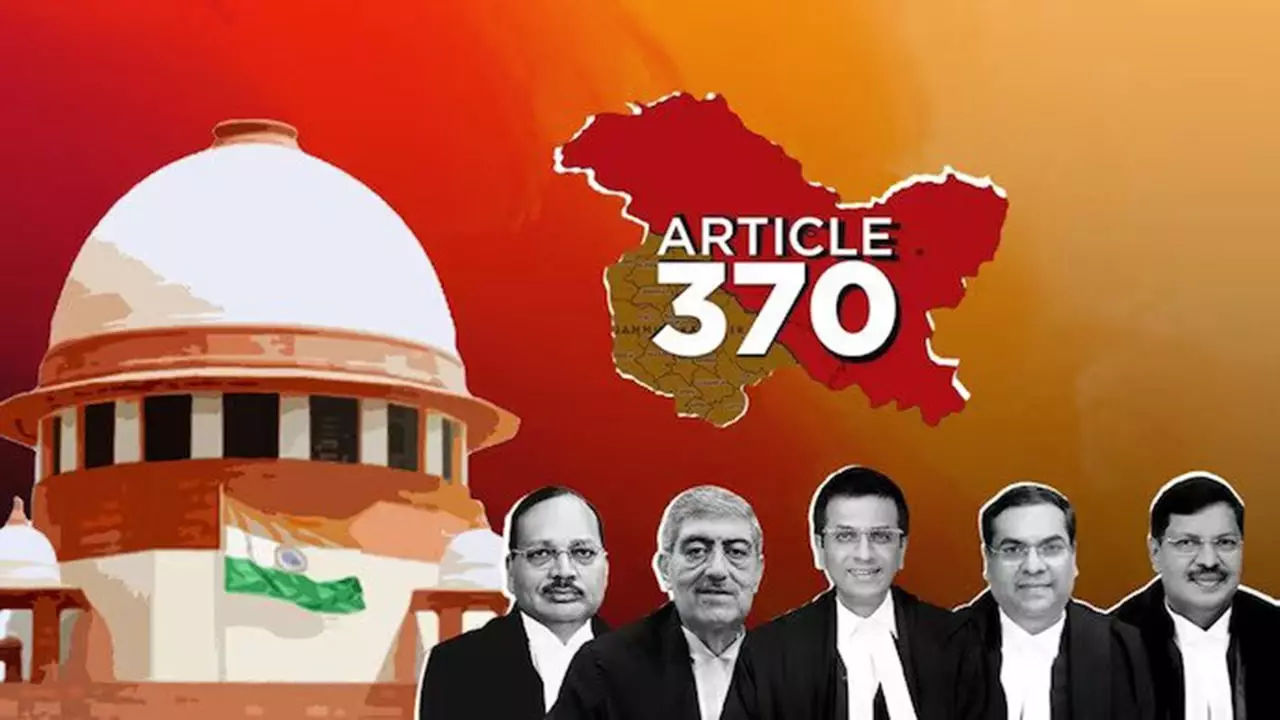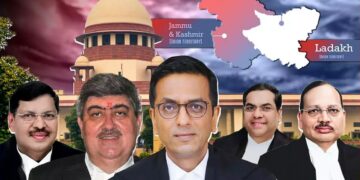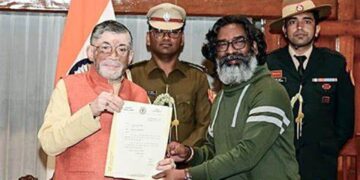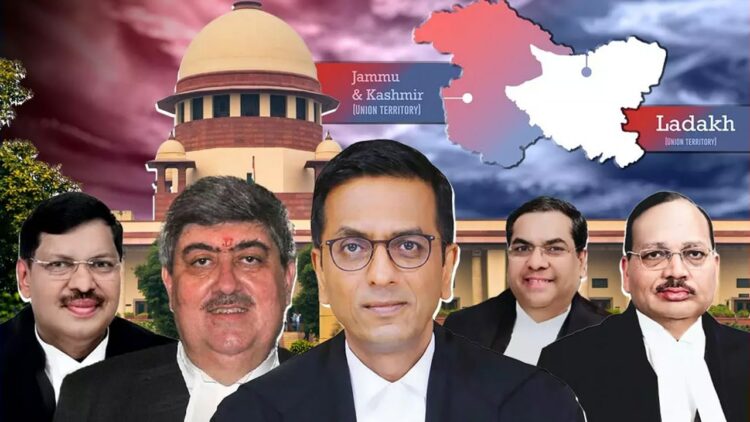Monday, 11 December 2023, the Supreme Court of India issued its final decision on the petition that challenged the central government’s abrogation of Article 370.
Final Verdict on Article 370

Read Also: What Happened? Investigating BBC Anchor Maryam Moshiri’s Shocking Live TV Controversy
Supreme Court has upheld the decision made by the center to repeal Article 370, saying that it lacked “mala fide” intent. D Y Chandrachud, the chief justice of India, has announced the final verdict on behalf of Justice Surya Kant and Gavai, saying that article 370 of the constitution is a temporary provision and the president has the authority to revoke it.
The decision was taken by a five-judge constitution bench led by Chief Justice D Y Chandrachud. It consisted of Sanjay Kishan Kaul, B R Gavai, Sanjiv Khanna, and Surya Kant. Here are the key takeaways from the final verdict by the Supreme Court.
- Chief Justice D Y Chandrachud has said that the five-member bench has unanimously made three judgments.
- CJI also said that every decision taken by the union on behalf of the state is not subject to challenge because it will lead to uncertainty and chaos and would also bring the administration of the state to a standstill.
- The Supreme Court also said that the petitioner’s argument that the Union Government could not take actions with irreversible consequences in the state during the presidential rule is unacceptable.
- Supreme Court also said that Jammu and Kashmir didn’t retain internal sovereignty after acceding to India.
- Supreme Court of India further said that Jammu and Kashmir had become an integral part of India, as evidenced by Article 1 and Article 370 of the constitution of India.
- CJI, reading the judgment, said it was an interim arrangement due to the war conditions and was a temporary provision.
- SC upholds that the power of the President to issue the notation of Article 370 ceases to exist and subsist even after the dissolution of the J&K Constituent Assembly.
- SC further said that Article 370 means the constitutional integration of Jammu and Kasmir with the Union and not for the disintegration.
- CJI said that Jammu and Kashmir has no internal sovereignty different from other states.
- The Jammu and Kashmir constituent assembly was never meant to be permanent.
- SC also said that concurrence of the state government was not required to apply all the constituted provisions using Article 370(1)(d). Thus, the president of India taking the concurrence of the Union government is not a mala fide.
- Supreme Court also said that the recommendation of the constitutional assembly of Jammy and Kashmir was not binding on the president of India.
- Supreme court further said that the president seeking concurrence of the Union and not state as valid and all the provisions of the Constitution of India can be applied to Jammu and Kashmir.
- CJI further said that the restoration of statehood in Union Terrority of Jammu and Kashmir should be done as soon as possible.
- SC further upholds the reorganization as a Union Terrority of Ladakh.
To get more out of our exclusive news, Join us on our WhatsApp Channel, Facebook, and Instagram.















